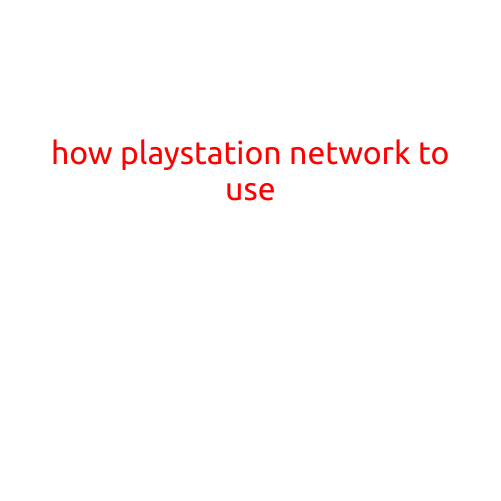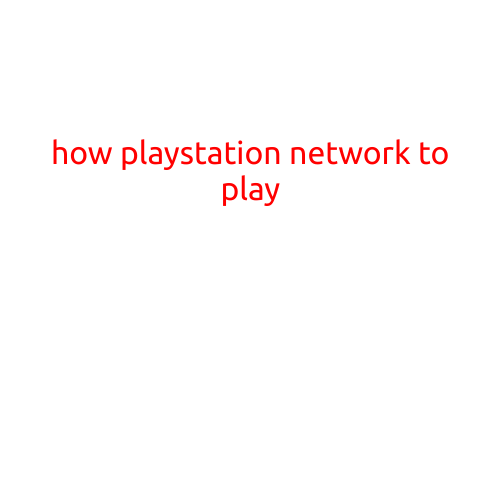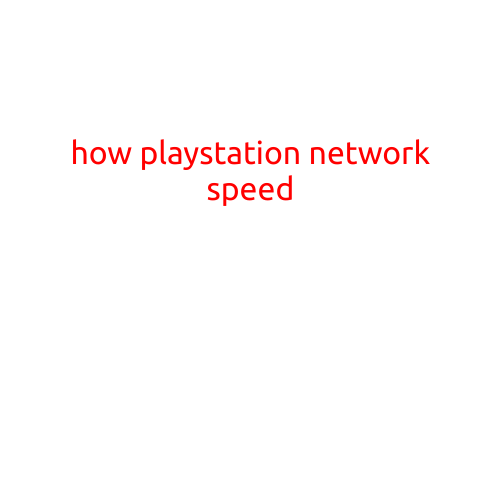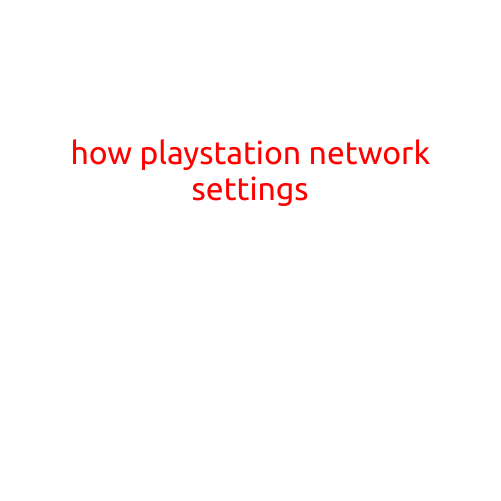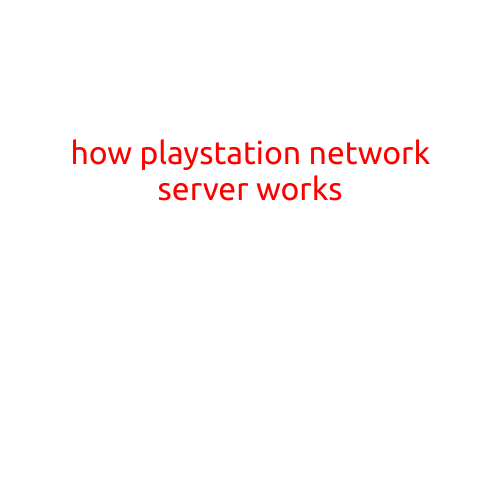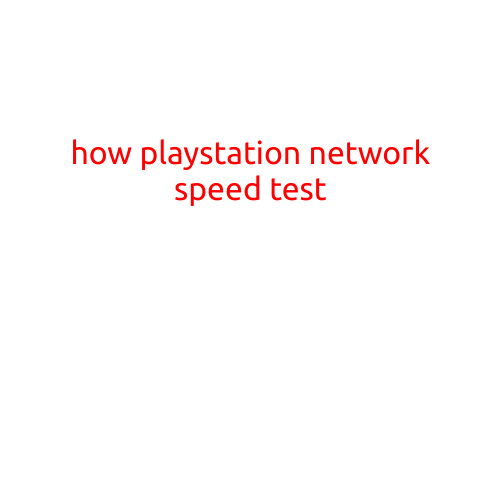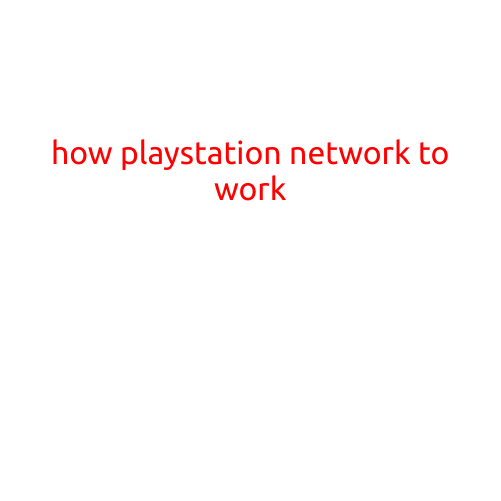
How PlayStation Network (PSN) Works
The PlayStation Network (PSN) is a popular online gaming platform that allows gamers to connect with each other, play games, and access various features and services on their PlayStation consoles. In this article, we’ll take a closer look at how PSN works and what makes it a vital part of the gaming community.
What is PSN?
PSN is a proprietary online gaming service developed and maintained by Sony Interactive Entertainment (SIE). It connects players across the globe, allowing them to play games online, share content, and participate in online communities. PSN was first launched in 2006 and has since become an integral part of the gaming experience on PlayStation consoles.
Key Components of PSN
To understand how PSN works, let’s break down its key components:
- Network Infrastructure: PSN relies on a complex network infrastructure that connects PlayStation consoles, servers, and data centers worldwide. This infrastructure ensures fast and secure communication between players and servers.
- Authentication: When you sign up for PSN, you create a unique account, which is linked to your PlayStation console (PS3, PS4, or PS5). The authentication process ensures that only authorized users can access your account and play games online.
- Server Clusters: PSN uses numerous server clusters, strategically located around the world, to handle game traffic, distribute content, and manage user activity.
- Game Servers: Game servers are dedicated machines that host specific games, handling matchmaking, game logic, and player interactions.
- Database: The PSN database stores player profiles, game data, and other relevant information.
How PSN Connects Players
Now that we’ve covered the key components, let’s explore how PSN connects players:
- Player Sign-up: You sign up for PSN by creating an account on the PlayStation website or through your PlayStation console.
- Account Linking: You link your PSN account to your PlayStation console, enabling online gaming, content sharing, and other features.
- Matchmaking: When you play an online game, the game server matches you with other players who are also playing the same game.
- Game Execution: Once matched, the game server initiates the gameplay, handling game logic, physics, and player interactions.
- Network Communication: The PSN infrastructure ensures fast and secure communication between players and servers, ensuring a smooth gaming experience.
Additional PSN Features
PSN offers a range of additional features that enhance the gaming experience:
- Friends List: You can manage your friends list, send messages, and invite friends to play games together.
- Trophy System: The trophy system lets you earn rewards and achievements for completing game objectives.
- Cloud Saves: PSN’s cloud save feature enables you to access your game saves from any PlayStation console or device.
- Streaming and Share Play: You can stream your gameplay or let friends join your game session through the Share Play feature.
PSN Security and Maintenance
To ensure the security and stability of PSN, SIE employs a range of measures:
- Encryption: PSN uses end-to-end encryption to protect user data and prevent unauthorized access.
- Firmware Updates: Regular firmware updates keep the PSN infrastructure up-to-date, ensuring the latest security patches and performance improvements.
- Security Research: SIE invests in security research to stay ahead of potential threats and protect user accounts.
Conclusion
PSN is a complex platform that enables millions of gamers to connect, play, and share experiences worldwide. By understanding how PSN works, you can appreciate the effort that goes into maintaining this massive online ecosystem. Whether you’re a casual gamer or a hardcore enthusiast, PSN provides a platform for you to engage with your favorite games and community.
